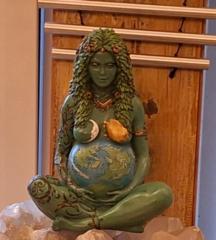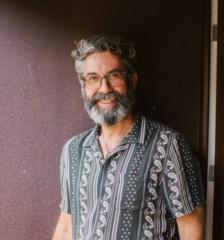Daoist keys to naturalness
"Nothing frustrates the mind more than its attempts to be spontaneously natural without any intention to do so." — Jason Gregory
The Unseen Architect: How Trauma Shapes Our Minds, Bodies, and the Path to True Self
Have you ever considered the profound connection between your deepest psychological experiences and the very cells of your body? It's a relationship far more intricate and impactful than many realise, especially when it comes to the lingering shadow of trauma. We often compartmentalise our physical and mental health, treating them as separate entities. But what if the suffering in our minds – particularly that stemming from unprocessed trauma – is not just related to physical and mental illness, but can directly manifest as it? This isn't just philosophy; it's a growing body of scientific understanding, powerfully illustrated by conditions like Dissociative Identity Disorder (DID), formerly known as Multiple Personality Disorder. Examining DID offers us a dramatic window into how our memories, identities, and especially trauma, can literally sculpt our physical reality. When the Mind Divides, the Body Follows: Lessons from Dissociative Identity Disorder Dissociative Identity Disorder (DID) is a complex condition born from severe, repetitive childhood trauma. In DID, a person develops distinct identity states, or "alters," each with their own memories, behaviours, and even ways of relating to the world. But here's where it gets truly astonishing: clinical evidence and research suggest that these distinct alters can experience the world, and even their own bodies, in fundamentally different ways. Imagine a person with DID where: - One alter suffers from severe allergies to a particular food, experiencing hives and difficulty breathing, while another alter, when "out," can consume that same food with no adverse reaction whatsoever. - An alter requires corrective lenses to see clearly, but when another alter is in control, their vision is excellent without glasses. - Chronic pain or even conditions like asthma or diabetes might be present and active for one alter, requiring medication, but subside or even disappear when a different alter fronts. - Responses to medication can vary dramatically; an alter unaware of a medication might not respond to it, while another who knows of it does.
5 Non-Dual Everyday Practises.
I've put together five practical ways you can start practicing non-duality today. It's about shifting your attention from the stories in your head to the raw, immediate experience. 1. Melt the Observer and the Observed (Chores as Practice). Think about doing the dishes or folding laundry. Usually, your mind says, "I am doing this boring thing." That's the split: I (the subject/doer) and dishes (the object/done). * The Shift: Try to drop the "I" label. Don't do the dishes; just let the experience of washing happen. Notice the warm water on your hands, the rough texture of the sponge, the squeak of clean glass. The sound, the sensation, the movement—it’s all just one unbroken experience. The washing is what you are right now. * The Payoff: When you really pay attention, the boring chore becomes vivid. You stop resisting the moment, and that’s a direct taste of non-duality. 2. Question Your Reactions (The 'Who is Annoyed?' Inquiry) Life throws curveballs, right? Maybe a driver cuts you off, or a coworker annoys you. The dualistic mind immediately yells, "They are bad, and I am right." * The Shift: When a strong emotion hits, don't follow the story. Just pause and ask, "Where is the center of this anger?" or "Who is feeling this annoyance?" Look for the solid, separate I that is getting upset. * The Payoff: You'll find that the "I" is elusive. It's not a thing you can grab, just a fleeting bundle of thoughts and sensations. The anger or annoyance is simply an event arising in a vast field of awareness, just like the sound of the car horn. See it as an event, not a personal attack. This process of self-inquiry is one of the quickest ways to see through the illusion of the separate self. 3. Drop the Judge (Accepting the Unacceptable) We're all walking, talking critics. We label everything: "This feeling is bad," "This weather is terrible," "That thought is stupid." This is the essence of duality: good/bad, right/wrong, self/other. * The Shift: Practice radical acceptance. Let everything be as it is. When a "bad" feeling like sadness or restlessness appears, don't try to fix it, judge it, or push it away. Just let it be. It's just energy moving.
3
0
What is love? Yeah-yeah
"Love is the only reality, and it is not merely a feeling. It is the supreme truth that lies at the heart of creation." - Tagore
Trauma patterns
“Trauma compromises our ability to interact with others by replacing patterns of connection with patterns of protection.” — Deb Dana
2
0
1-30 of 69

skool.com/shangriballa
Join our free non-dual community to connect with a global family of seekers. Discover your inner guru and integrate spiritual wisdom into your life.
Powered by







